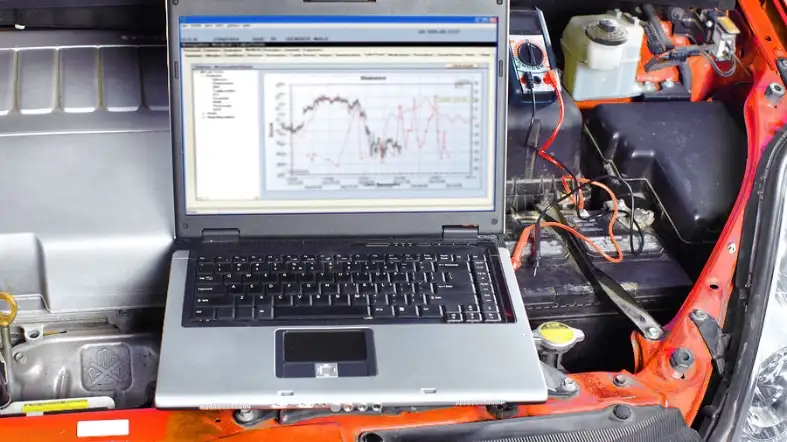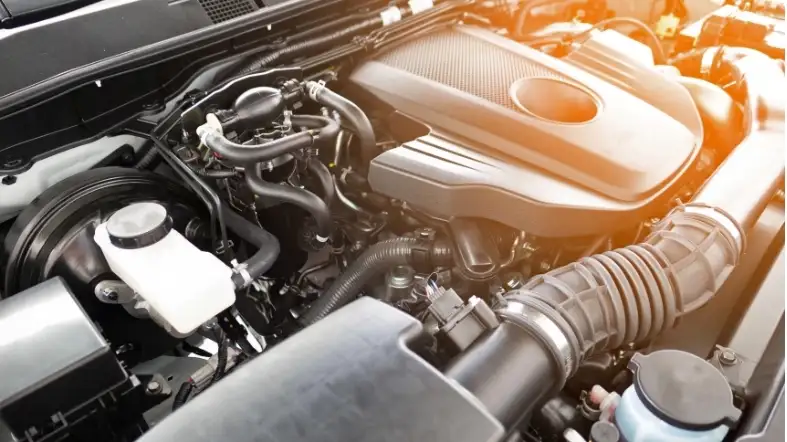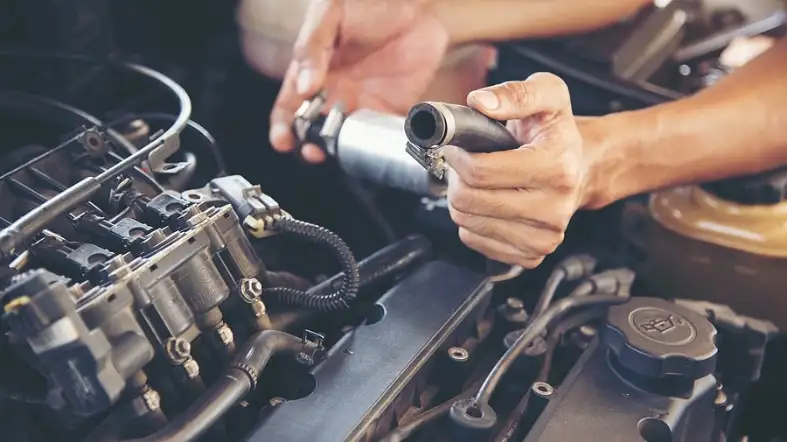Are you considering a performance tune for your car but wondering how much horsepower it can actually add? Look no further!
In this blog post, we’ll dive into the world of tuning and explore just how much of a horsepower boost you can expect from a tune.
From understanding the factors that affect performance gains to discussing the different types of tunes available, we’ve got you covered. So let’s rev up and get started!

how much hp does a tune add?
A tune can add anywhere from 10-20% more horsepower to your engine. The exact horsepower gain will depend on factors such as the quality of the tune, the type of engine, and other variables.
Here’s a table outlining the potential horsepower gains from a tune:
| Type of Tune | Horsepower Gain |
|---|---|
| Basic Off-the-Shelf Tune | 10-15% |
| Custom Tune | 15-20% |
| ECU Remapping | 10-20% |
| Piggyback ECU | 5-15% |
| Standalone ECU | 15-25% |
What Are the Benefits of Tuning an Engine?
To improve your car’s speed, power, or fuel economy, tuning your engine will help you achieve your goals. Tuning an engine can offer several benefits, like,
Improves Performance
Tuning an engine is improved performance. You can increase its power and speed by adjusting the settings of your car’s engine.
This is useful in racing or driving a high-performance car. Tuning your engine can help you achieve faster acceleration, higher top speeds, and more responsive handling.
Increases Fuel Economy
Tuning your engine can also help improve your car’s fuel economy.
You can optimize your engine’s performance to achieve better gas mileage by adjusting the fuel-to-air ratio and other settings.
This means you’ll be able to drive farther on a tank of gas to save money. Tuning your engine can help reduce emissions and make your car more environmentally friendly.
Enhances Reliability
Another benefit is improved reliability. By making adjustments to your car’s engine, you can reduce the likelihood of mechanical problems and extend the life of your vehicle.
This is because tuning your engine can help ensure all of its components are working together properly and it’s operating within safe limits.
Provides Customization Options
Tuning your engine also provides you with a wide range of customization options.
You can adjust the settings to achieve specific performance goals, like improving your car’s acceleration or top speed.
You can personalize your car to suit your driving preferences by adjusting the throttle response, shifting points, and other settings.
Saves Money
Tuning your engine can also save you money in the long run. You’ll spend less money on gas and repairs over time by improving your car’s fuel economy and reliability.
It can increase the resale value of your car to sell it for more money in the future.
How is Horsepower Measured?

Here is the measurement of horsepower – the unit of power used to describe the output of engines and motors.
Step 1: Understanding What Horsepower is
A horsepower is a unit of power used to describe the rate at which work is done.
One horsepower is defined as the amount of power needed to lift 550 pounds one foot in one second.
If you could lift 550 pounds in one foot in one second, you would be exerting one horsepower of power.
Step 2: Measuring Horsepower for Engines
The most common method of measuring horsepower for engines is using a dynamometer.
A dynamometer consists of a water brake or electric generator that is attached to the engine’s output shaft.
The dynamometer measures the torque produced by the engine and calculates the horsepower output.
Step 3: Calculating Horsepower
To calculate horsepower, you need to know the torque output of the engine and the engine’s RPM (revolutions per minute). The formula for calculating horsepower is:
Horsepower = (Torque x RPM) / 5252
For example, if an engine produces 300 lb-ft of torque at 4000 RPM, the horsepower output can be calculated as
Horsepower = (300 x 4000) / 5252 = 228.3 horsepower
Step 4: Measuring Horsepower for Electric Motors
Measuring horsepower for electric motors is slightly different than measuring horsepower for engines.
You can measure the voltage and current of the motor to calculate its power output. The formula for calculating the power output of an electric motor is:
Power = Voltage x Current
You can convert it to horsepower using the following formula:
Horsepower = Power / 746
For example, if an electric motor produces 10 horsepower, the power output can be calculated as
Power = 10 x 746 = 7460 watts
Step 5: Other Factors Affecting Horsepower
There are several other factors including air temperature, humidity, altitude, and fuel quality.
Engines and motors will produce less horsepower in hot, humid conditions and at high altitudes due to the lower air density.
Using low-quality fuel can reduce horsepower output and cause engine damage over time.
Step 6: Importance of Measuring Horsepower
Measuring horsepower is important for a variety of reasons.
It allows you to compare the power output of different engines or motors and make informed decisions about which one to use for a particular application.
It also helps you monitor the health of your engine or motor and detect any performance issues early on.
What Factors Affect How Much Power a Tune Can Add?

The amount of power can be added through tuning on several factors. Some of the factors can affect the number of power a tune can add:
Engine Design:
The design of the engine can significantly impact the amount of power that can be added through tuning.
Some engines are designed with more potential for increased power than others.
Vehicle Age:
Older vehicles may have more room for improvement through tuning because they have fewer electronic systems and sensors that can limit the amount of power that can be added.
Engine Condition:
The condition of the engine is a critical factor in how much power can be added through tuning.
A well-maintained engine will have more potential for increased power than one that has not been well-maintained.
Type of Tune:
The type of tune that is used can also affect how much power can be added.
A mild tune that makes small adjustments to the engine’s parameters will likely add less power than a more aggressive tune that makes significant changes.
Fuel Quality:
The quality of fuel that is used can impact how much power can be added through tuning.
Low-quality fuel may limit the amount of power that can be added, while high-quality fuel may allow for more significant gains.
Environmental Factors:
Environmental factors such as altitude, temperature, and humidity can also impact how much power can be added through tuning.
These factors can affect the density of the air that is entering the engine, which can impact its power output.
Supporting Modifications:
Supporting modifications such as a high-flow air intake, upgraded exhaust system, or larger turbocharger can also impact how much power can be added through tuning.
These modifications can improve the engine’s efficiency and allow for more significant power gains.
How Do You Know If Your Engine Needs a Tune?

Knowing when your engine needs a tune is important for keeping your vehicle running smoothly and efficiently. Here are some signs of your engine seek a tune:
Decreased Fuel Efficiency:
If you notice that you’re getting fewer miles per gallon than you used to, it could be a sign of your engine’s tune.
An engine that’s not running efficiently can burn more fuel, which can lead to decreased fuel efficiency.
Rough Idle:
If your engine is running rough at idle, it could be a sign that it needs a tune.
An engine that’s not running smoothly can cause vibrations and shaking that you can feel through the steering wheel or in the seat.
Loss of Power:
If your engine has lost power, it is a sign of needing a tune. An engine that’s not running at its full potential can struggle to accelerate or maintain speed.
Check Engine Light:
If your check engine light is on, that means your engine needs a tune.
The check engine light can be triggered by a range of issues, including problems with the engine’s sensors or emissions system.
Unusual Noises:
If you hear unusual noises coming from your engine, such as knocking, pinging, or hissing, it could be a sign that it needs a tune.
These noises can be caused by a range of issues, including misfiring cylinders or a malfunctioning exhaust system.
Rough Shifting:
If your vehicle has an automatic transmission and you notice that it’s shifting roughly or hesitating, it could be a sign that your engine needs a tune.
An engine that’s not running smoothly can impact the performance of the transmission.
High Mileage:
If your vehicle has high mileage and you haven’t had a tune-up in a while, it’s a good idea to schedule one.
Engine components can wear down or become dirty, which can impact their performance.
How Much Does a Tune Cost?
The cost of a tune varies depending on the type of tune and the location of the mechanic.
A basic tune can cost anywhere from $50 to $200, while a more advanced tune can cost upwards of $500 or more.
The table below shows the average costs for different types of tunes:
| Type of Tune | Average Cost |
|---|---|
| Basic | $50-$200 |
| Performance | $500-$1,500 |
| Custom | $750-$2,500 |
FAQs
Can A Tune Damage My Engine?
When done correctly by a qualified mechanic, a tune should not damage your engine.
If the tune is too aggressive or performed incorrectly, it can potentially cause damage to your engine.
Choose a reputable mechanic with experience in tuning and make sure they use high-quality parts and equipment.
How Long Does A Tune Take?
The time it takes to perform a tune varies depending on the type of tune and the vehicle.
A basic tune may only take a few hours, while a more advanced tune can take several days or even weeks.
discuss the timeline with your mechanic before starting the tune to ensure that it fits your schedule and expectations.
How Often Should I Get A Tune?
The frequency of tunes depends on the vehicle and the type of tune.
Some vehicles may only need a tune every few years, while others may benefit from more frequent tuning.
consult with your mechanic to determine the best tune schedule for your vehicle and driving habits.
Can I Tune My Own Vehicle?
While it’s possible to tune your own vehicle with the right equipment and knowledge, it’s not recommended for most drivers.
Tuning requires a deep understanding of engine mechanics and programming, and making mistakes can potentially damage your engine.
It’s safer and more effective to have a qualified mechanic perform the tune.
Will A Tune Void My Vehicle’s Warranty?
It depends on the specific terms of your warranty.
Modifications such as tuning can void your vehicle’s warranty if they are not authorized by the manufacturer.
Read your warranty carefully and discuss any modifications with your dealer before making them.
Conclusion
The amount of horsepower added by a tune depends on various factors such as the type of tune, vehicle engine condition, and fuel quality.
Getting a tune can improve vehicle performance and increase horsepower, but weigh the costs and benefits before deciding whether or not to get a tune.
Choose a reputable mechanic with experience in tuning to ensure a safe and effective tune.
